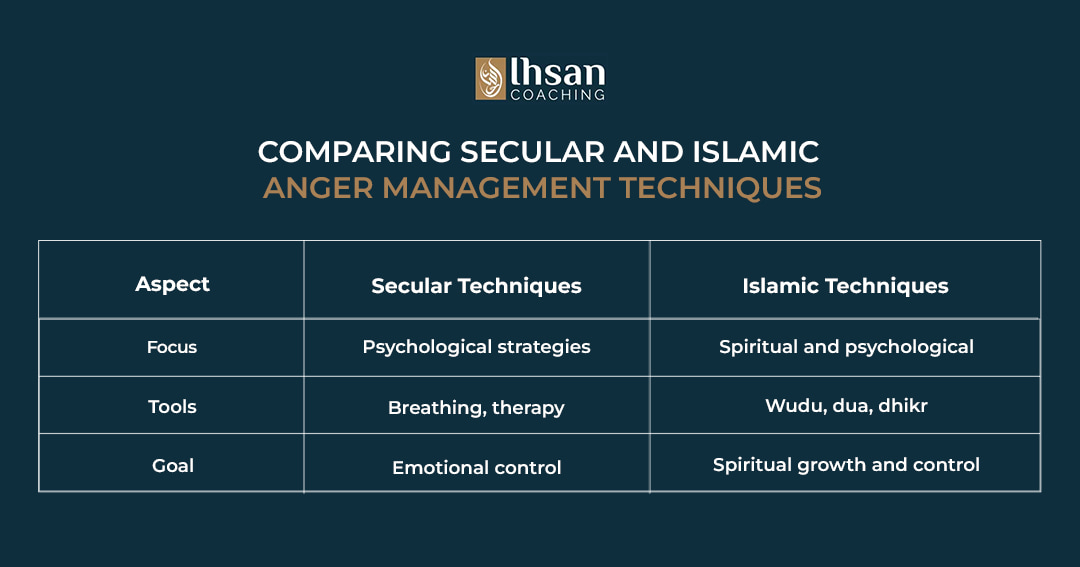Anger is a natural emotion that every individual experiences at some point. However, if uncontrolled, anger can lead to harmful actions that disrupt relationships, work, and personal well-being. In a global mental health survey, many people report daily struggles with controlling anger. For Muslims, managing anger is not just about emotional health, but also a spiritual obligation. The Quran and Sunnah provide timeless guidance to help believers transform their anger into an opportunity for growth and self-discipline.
The Reality of Anger in Our Lives
Anger, though a natural human emotion, can cause significant harm when not properly managed. Whether in personal relationships, at work, or in everyday situations, unrestrained anger can lead to regretful words and actions.
From an Islamic perspective, anger is considered a test, and how we manage it can determine our character and spiritual development. The Prophet Muhammad (peace be upon him) emphasized the importance of controlling one’s anger, warning against the negative consequences of unrestrained wrath.

Why Is Anger Management Important in Islam?
Anger can lead to regrettable actions and strained relationships if not controlled. Islam places great emphasis on self-control and patience, especially when facing challenges. The Prophet Muhammad (peace be upon him) stated:
“The strong is not the one who overcomes others by strength, but the strong is the one who controls himself while in anger.” (Sahih al-Bukhari, 6114)
This hadith highlights that true strength lies not in physical power, but in the ability to control one’s emotions, especially anger. In Islam, managing anger aligns with core values like patience, forgiveness, and self-restraint. By exercising control over anger, a Muslim strengthens their relationship with Allah and cultivates better interpersonal relationships.
The Islamic Approach to Managing Anger
Quranic Guidance on Anger Management
The Quran provides clear instructions on managing anger. It encourages believers to be patient and to forgive others, as this is a path to gaining Allah’s love. Allah says in the Quran:
ٱلَّذِينَ يُنفِقُونَ فِى ٱلسَّرَّآءِ وَٱلضَّرَّآءِ وَٱلْكَـٰظِمِينَ ٱلْغَيْظَ وَٱلْعَافِينَ عَنِ ٱلنَّاسِ ۗ وَٱللَّهُ يُحِبُّ ٱلْمُحْسِنِينَ
“They are those who donate in prosperity and adversity, control their anger, and pardon others. And Allah loves the good-doers.” (Surah Al-Imran, 3:134)
This verse encourages Muslims to practice patience and forgiveness, emphasizing that controlling one’s anger is a virtue that draws one closer to Allah. Restraining anger is seen not just as a personal victory but as an act of spiritual devotion and worship.
Sunnah Practices for Anger Management
The life and actions of the Prophet Muhammad (peace be upon him) offer practical and spiritual steps to help control anger:
Seek Refuge in Allah
The Prophet (peace be upon him) said:
“When one of you is angry, let him say, ‘I seek refuge with Allah from Satan the accursed.’” (Sunan Abu Dawood, 4780)
This simple dua shifts the focus from anger to seeking Allah’s help, which helps to calm the mind and reduce the intensity of anger.
Change Your Physical State
The Prophet (peace be upon him) advised:
“If one of you becomes angry while standing, let him sit down. If the anger leaves him, well and good; otherwise, let him lie down.” (Sunan Abi Dawood, 4782)
A change in physical posture can help de-escalate feelings of anger by allowing the body to relax, thus calming the mind.
Perform Wudu (Ablution)
Anger is often likened to a fire in Islamic tradition, and just as water extinguishes fire, performing wudu helps cool both the body and spirit. This act of purification serves as a spiritual reset and helps calm anger.
Maintain Silence
The Prophet (peace be upon him) also instructed:
“When you are angry, be silent.” (Musnad Ahmad, 21327)
This advice prevents the angry individual from speaking impulsively, which could lead to escalating conflict. Silence provides a moment of reflection before acting, preventing regretful words.
The Psychological Benefits of Islamic Anger Management Techniques
✅️ Emotional and Mental Health Advantages
The Islamic approach to anger management offers several psychological benefits:
✅️ Improved Relationships
By restraining anger, Muslims can forgive and understand, leading to better relationships with family, friends, and colleagues. Controlling anger reduces conflicts, creating a more peaceful and harmonious environment.
✅️ Reduced Stress
Islamic anger management techniques, such as wudu and dhikr (remembrance of Allah), activate relaxation responses that lower stress levels. This leads to improved emotional stability and overall well-being.
✅️ Enhanced Self-Awareness
Following the Islamic guidelines on managing anger helps believers become more aware of their emotional triggers. This awareness enables them to develop greater self-discipline, which is essential for personal growth and spiritual development.

The main difference between secular and Islamic anger management lies in the holistic approach of the Islamic methods, which combine both spiritual and psychological tools. While secular techniques focus on emotional control, Islamic practices emphasize spiritual growth and the development of self-discipline, which ultimately leads to emotional control.
Practical Applications for Muslims
✅️ During Family Disputes
In family disputes, it is essential to manage anger to prevent the situation from escalating. Islam encourages practicing silence when angry, changing physical posture, and using kind words afterward to reconcile. This ensures that conflicts are resolved with wisdom and patience.
✅️ At Work
Workplace stress is a common trigger for anger. When faced with challenging situations at work, Muslims are encouraged to take a moment for wudu or engage in dhikr to calm their minds. Practicing patience and reminding oneself of the rewards Allah promises to those who remain patient can help in maintaining composure.
✅️ Community Interactions
In community settings, anger management is crucial to maintaining respect and understanding. Muslims are encouraged to practice restraint during disagreements, focusing on mutual respect and constructive dialogue. Engaging in shura (consultation) with others to resolve conflicts is another practice that Islam encourages for peaceful problem-solving.
The Rewards of Anger Management Therapy in Islam
Controlling or managing anger in Islam is not only about emotional health but is also highly rewarding. The Prophet Muhammad (peace be upon him) stated:
“Whoever suppresses his rage, while he has the power to act, Allah will call him before all of creation on the Day of Judgment and allow him to choose from the rewards of Paradise.” (Sunan Ibn Majah, 4186)
This profound reward highlights the spiritual significance of managing anger and the immense rewards awaiting those who practice self-restraint.
FAQs About Anger Management in Islam
Is feeling anger sinful?
No, feeling anger is not sinful. It is a natural emotion. However, acting on anger in harmful ways, such as through aggression or verbal abuse, is discouraged in Islam.
How can I prevent anger from escalating?
- Seek refuge in Allah by saying, “أَعُوذُ بِاللَّهِ مِنَ الشَّيْطَانِ الرَّجِيمِ”
- Practice deep breathing and dhikr to calm your mind.
Can anger be a positive force?
Yes, when channeled constructively, anger can inspire positive change and motivate action against injustice.
Are there any specific duas for anger management?
Yes, reciting “رَبِّ اغْفِرْ لِي وَلِوَالِدَيَّ وَلِلْمُؤْمِنِينَ يَوْمَ يَقُومُ الْحِسَابُ” (My Lord, forgive me, my parents, and the believers on the Day of Reckoning) can help calm the heart.
What role does diet play in anger management?
Consuming halal and wholesome foods and avoiding stimulants like excessive caffeine can positively influence mood and reduce irritability.
Anger management in Islam is more than just a personal endeavor; it’s a spiritual journey that draws us closer to Allah and improves our relationships with others. By embracing the teachings of the Quran and Sunnah, Muslims can transform anger into an opportunity for growth and righteousness.
How Ihsan Coaching Can Help
At Ihsan Coaching, we offer individual coaching and religious coaching. Our experts help in integrating spirituality with emotional well-being. We also offer anger management for those who are having a difficult time controlling their anger. Take the first step toward emotional balance and spiritual growth. Contact Ihsan Coaching today and let us help you achieve peace and self-control through Islamic guidance.




